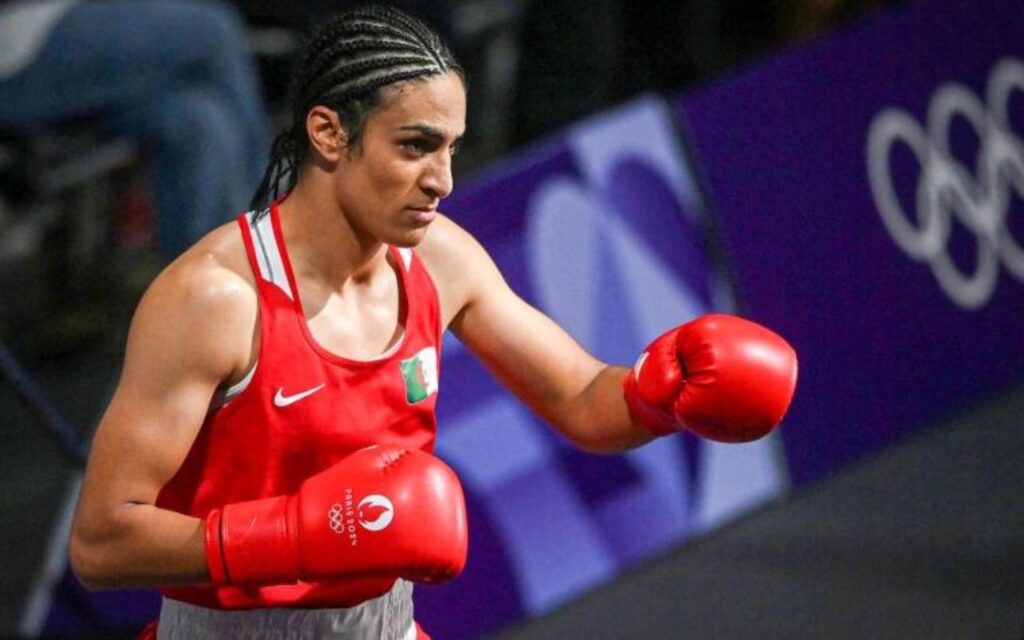
The Imane Khelif boxing story has made me angry. It’s made me sad. It’s made me scared for women I love. And it’s made me deeply disappointed in the ignorance, rush to judgment, and pettiness of some people I’ve known for decades.
For those lucky enough not to know what I’m talking about, Algerian Olympic boxer Imane Khelif faced a wave of unfounded online accusations claiming she is a man after her swift victory over Italy’s Angela Carini. Despite no evidence supporting these claims (and despite Carini saying she bears Khelif no ill will), high-profile figures like Elon Musk and J.K. Rowling amplified the controversy, leading to intense public scrutiny and disinformation.
This isn’t like a witch hunt. This is a witch hunt. And just as with all successful witch hunts, we’re seeing:
- Baseless accusations
- Moral panic
- Targeting of vulnerable individuals
- Public shaming, vilification, and othering
- Suppression of critical thinking
The result? More scrutiny and policing of women’s bodies. Just what we need.
Women are still being told what to wear — think Serena Williams’ catsuit or the Norwegian women’s beach handball team’s fight to wear shorts instead of bikini bottoms. We’re still being told where we can breastfeed our children. And at the extreme end of things, as in this story, we’re being judged — by others — about whether we’re actually women.
The ignorance
I don’t want to get into the weeds of Imane Khelif’s body. That’s her business. It’s the business of the IOC to determine whether she (and all competitors) is eligible to compete in the Olympics, and they did so before the Games began.
However, because millions of people seem to think they have the right to proclaim that “she’s not a woman” and call her “he”— I’ll say as much as somebody with a journalism degree is qualified to say:
- Chromosomes are NOT absolute. People can have XY, XX, XO, XXY, XYY, and XXX chromosomes and can have characteristics we think of as male or female. If somebody is throwing around the “chromosomes are proof” argument, the only thing they’re proving is their ignorance. Most people have never had their chromosomes tested — if they did, some might be surprised by what they find.
- We ALL have testosterone. Every human being. It goes up and down. Please see above for anyone who argues, “testosterone is proof.”
Not only do I not want to debate anybody’s sex, gender, ability, disability, etc. — I also think that’s not really the point.
The point is, when the world turns on a woman in the way the world has turned on Imane, we are all vulnerable. Every single one of us is living in a glass house.
The double standard
If we’re lucky enough that it’s not us — if we “look feminine,” don’t push the boundaries of how women are supposed to behave, aren’t attracted to the “wrong” gender, don’t need assistance getting pregnant or terminating our pregnancy — it will almost certainly be somebody we know and love.
If you have a friend, mother, sister, child — a loved one of any relation — who is a woman, then as long as there are people who think they get to judge, monitor, analyze, and control our bodies, somebody you love will be at risk.
We don’t do this to men. Even though men have estrogen, they aren’t subject to testing or regulations that require them to alter their natural hormone levels to compete. Nobody says, “Wow, I think that male figure skater, or gymnast, or artistic swimmer, is far too expressive — they must have too much estrogen, let’s test them and ban them from competition.” Male athletes aren’t subjected to sex verification or chromosomal tests.
The cruelty and rush to judgment
So, I detest the ignorance, the double standard, and the viciousness of it.
People can have reactions. They can have questions. They can have opinions.
But what’s so troubling to me is the nastiness. The accusations, name-calling, and slurs.
Even if you disagree with me and think it’s perfectly fine for women to have to jump through hoops and let other people decide if they’re really women, there’s a way to say that without being hateful.
The athlete in the middle of this firestorm is somebody’s child. I was sickened to see a woman I’ve known since high school — a mother of five, including an LGBTQ child — post on social media calling this athlete disgusting names and attacking anybody who commented that there might be more to the story.
It brought to mind Jennifer Aniston’s retort to JD Vance’s criticism of childless women when she wrote, “Mr. Vance, I pray that your daughter is fortunate enough to bear children of her own one day. I hope she will not need to turn to IVF as a second option. Because you are trying to take that away from her, too.”
For my part, I hope the people making truly odious comments about this athlete never find themselves or a loved one in a position where they’re being judged for their body or how they choose to use it.
Be part of the solution
Here’s how you can be part of the solution, instead of part of the problem:
- Combat ignorance. Do your own reading and research. Does a story sound unbelievable? Maybe it is.
- Ask tough questions. Am I reacting based on fear, or facts?
- Stay out of the gutter. Even if you’re still upset by a story, name-calling doesn’t strengthen your argument.






